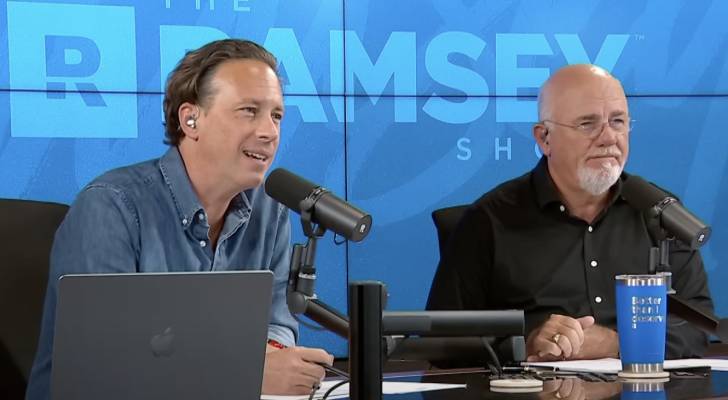Dave Ramsey on The Ramsey Show
A Chicago woman recently called into The Ramsey Show with life-changing news: She and her husband had won US$1.375 million from a scratch ticket. What started as a quick stop at a local gas station turned into a financial turning point.
“We’re still in shock,” the caller admitted. Her husband randomly picked up the ticket three weeks ago and realized it was a jackpot winner. They chose a lump sum payout of a little over US$400,000 after taxes (lottery prizes are subject to federal and state taxes where applicable).
Luckily for us Canadians, lottery winnings are tax-free. Still, the after-tax amount of this caller’s win was significant, and Dave Ramsey advised consulting a financial professional before spending a dime.
Lottery prizes are not taxed by the Canada Revenue Agency.
If you win $1 million, you actually keep the full amount. But there’s a big catch:
The winnings are tax-free, but the income they generate is not.
Suppose you invest the money and earn interest, dividends or capital gains. In that case, those earnings are taxable unless they’re in registered accounts like a Tax-Free Savings Account (TFSA) or a Registered Retirement Savings Plan (RRSP).
Even though you’re not paying tax upfront, its still important to hire a financial planner or tax professional so you don’t end up with an unexpected tax bill later.
“The first thing we’re going to do is get a tax professional,” he said. “It’s going to be worth a thousand dollars, or whatever it is, five hundred bucks, to get some professional tax advice. That’s the first thing you do.”
The caller shared their plan to clear their debt after paying taxes.
The couple has about US$31,000 in credit card debt and a mortgage with a balance of around US$137,000. With cars paid off and a modest household income of around US$123,000, Ramsey’s advises eliminating high-interest consumer debt immediately.
Here’s how to get started:
-
Pay off credit cards first: Canadian credit card interest rates average around 19.99% to 23.99%, making them one of the biggest obstacles to building wealth.
-
Consider paying off your mortgage next: While mortgage rates are generally lower, eliminating this obligation can free up cash flow and reduce long-term risk.
Story continues
Read more: I’m in my early 60s and I want to retire in 3 years or less — what are 5 financial boxes I need to check right now?
The couple’s next step is to make the remaining money work for them. Ramsey suggests connecting with a vetted advisor to craft an investment plan tailored to their needs.
For Canadian couples in their early 40s, experts recommend a balanced investment strategy:
-
Moderate portfolio (40–60% equities): A good tip is to invest in ETFs or index funds within a TFSA or RRSP to grow your portfolio over time.
-
Bonds and fixed income (30–40%): Use Canadian bond ETFs, GICs, or other fixed-income products to create a stable and balanced portfolio.
-
Cash or short-term holdings (10–20%): Have funds ready for near-term goals like home renovations, travel, or other planned expenses.
Financial planners also recommend maximizing your TFSA and RRSP contribution room first. Since earnings in these accounts grow tax-sheltered, they’re more efficient than investing through a taxable brokerage account.
For example, investing CA$300,000 today with an average annual return of 10% could double to CA$600,000 in seven years.
Ramsey urges the couple to create a written plan before spending anything.
“If you write down where every one of these dollars goes — give them every name before they come,” he said. “You’ve got a little time to get ready emotionally before the money arrives. And so when the cheque comes, it’s boring because you execute your little list.”
In Canada, lottery winnings may be tax-free — but without a plan, that million can disappear faster than you think.
This article provides information only and should not be construed as advice. It is provided without warranty of any kind.
